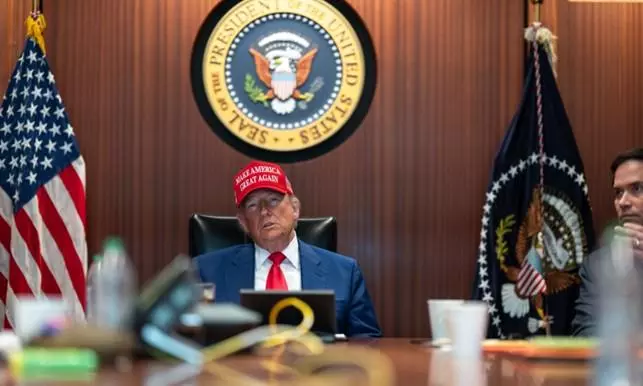
Going to send tariff letters to countries from Friday, July 4, says Trump
Move comes as 90-day pause on tariffs, initiated in April, is set to expire on July 9; US and India already engaged in trade talks

US President Donald Trump has stated that starting Friday (July 3), the United States will begin dispatching letters to various countries, detailing new reciprocal tariff rates.
This move comes as the 90-day pause on tariffs, initiated in April, is set to expire on July 9.
Trump emphasised the complexity of negotiating individual trade deals with over 170 countries, suggesting that issuing tariff letters is a more straightforward approach. The letters will specify tariffs ranging from 20 to 30 per cent, depending on the country.
India-US trade talks
Amid these developments, India and the US are engaged in finalising an interim trade agreement. Trump previously indicated that the US and India "may" sign a deal that would "open up India," aiming to reduce tariffs and enhance market access for American companies.
Watch | Is India moving closer to Afghan Taliban govt?
However, as of now, no official agreement has been announced. The impending deadline adds urgency to the negotiations, with the potential for increased tariffs if a deal is not reached.
The US has already imposed significant tariffs on several countries: 36 per cent on Thailand, 32 per cent on Indonesia, 25 per cent on South Korea, 24 per cent on Malaysia, and 20 per cent on the European Union.
Japan faces a 24 per cent duty amid stalled trade talks. These measures are part of the Trump administration's broader strategy to address trade imbalances and protect American industries.
All eyes on July 9
As the July 9 deadline approaches, the international community watches closely.
The outcome of the India-US trade talks will not only impact bilateral relations but also set a precedent for how the US engages with other trading partners moving forward, say experts.

